BATTERIES FOR SOLAR STORAGE SYSTEM
We‘re committed to offer you the most Reliable energy solutions as your needs by our 15 years experience in the energy supplay chain .

Full Range of KH Solar Battery Solutions
Keheng lithium solar storage batteries are extensively used in households, commercial, and industrial applications.From powering homes to supporting large-scale commercial and industrial operations,these batteries offer a variety of benefits and have proven to be a dependable and efficient source of renewable energy.
How Does Solar System Work
A home solar system uses panels on your roof to convert sunlight into daytime electricity. Some power your home, and extra energy is stored in batteries for night use. It reduces costs, helps the environment, and provides backup. Excess energy can be stored or returned to the grid. This type of PV energy storage system can also be used for industrial and commercial purposes to achieve carbon-neutral, zero-emission sustainable development strategies!
How do we stand 100% behind our battery
Excellent Technology
One-stop solution for customized energy storage system integration
15 years of battery manufacturering experience
Intelligent operation and maintenance backstage, view the system status, easily obtain information
Flexible modular design, diversified customer needs, applicable to multiple scenarios.
Independent research and development of BMS,EMS,cloud platform to ensure the safety and stability of the battery
Systematic service process,after-sales service network all over the world

Quality Assurance
- UL1973 IEC62619 / CE / UN38.3 Certificates.
- CooperativeTesting Laboratories.

Quick Response
- Our sales engineer team will response for your questions at 24hours*7days.

Cells & Packs
- The olivine structure and the stability of p-O bond of LFPcells guarantee much higher safety than those of NCM cells.
- 15 years experiences of pack R&D ensure longer cycle life of the battery.

Joint with Top BMS
- Double protection by master chips, When the main chip fails,the back-up chip keep sprotecting the system.
- Real-time temperature, current,voltage measuring andmonitoring.
- Accurate SoC and SoH calculation.
Qualification certificate

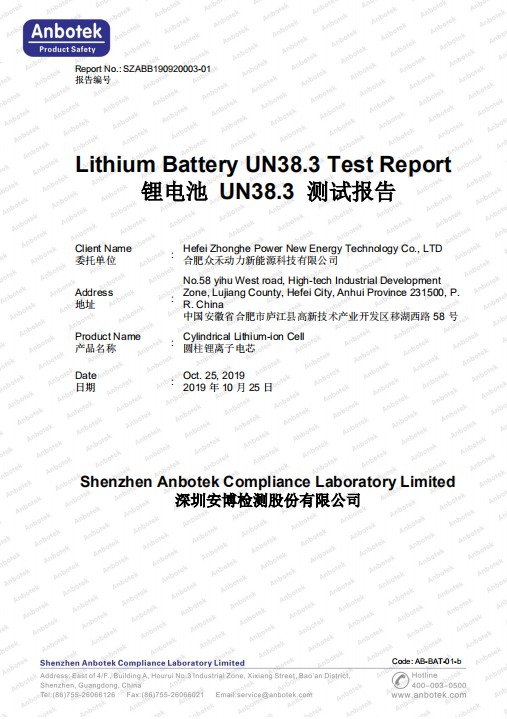
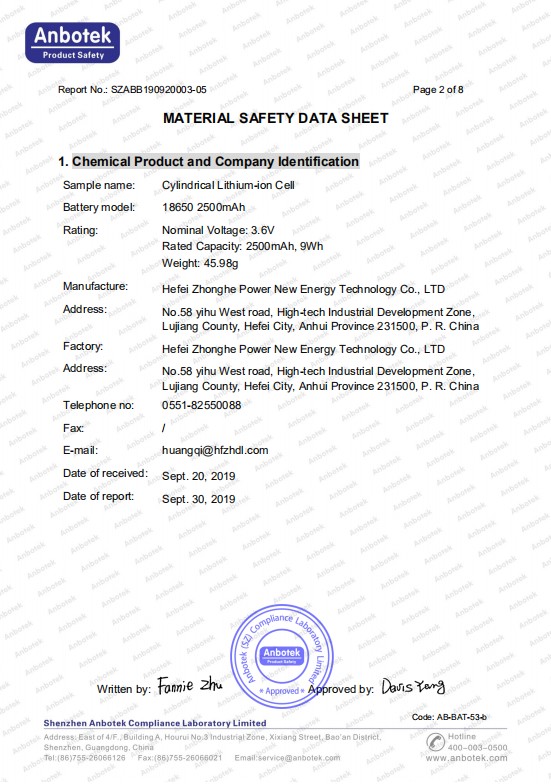

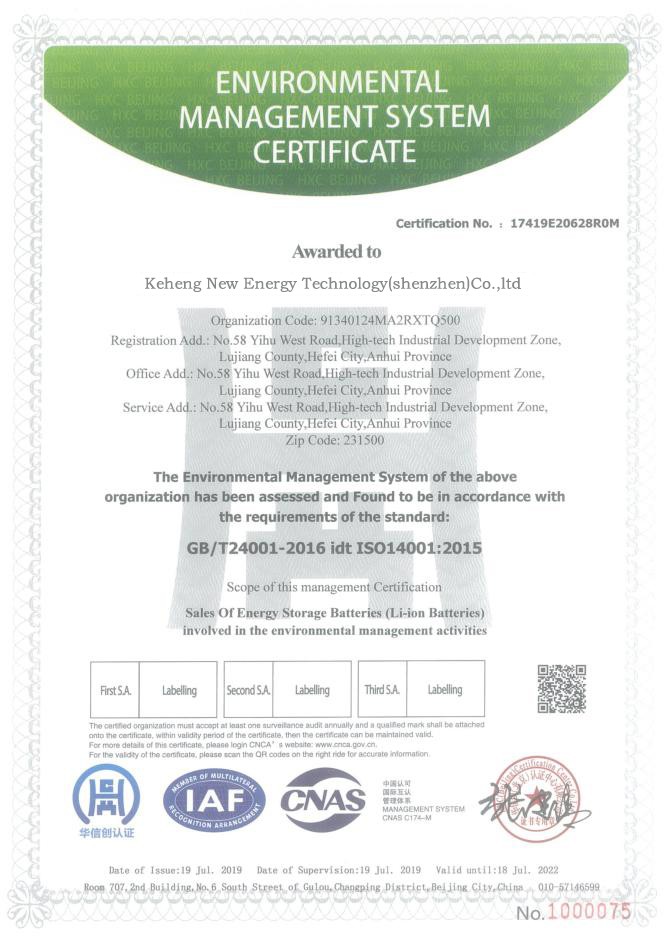

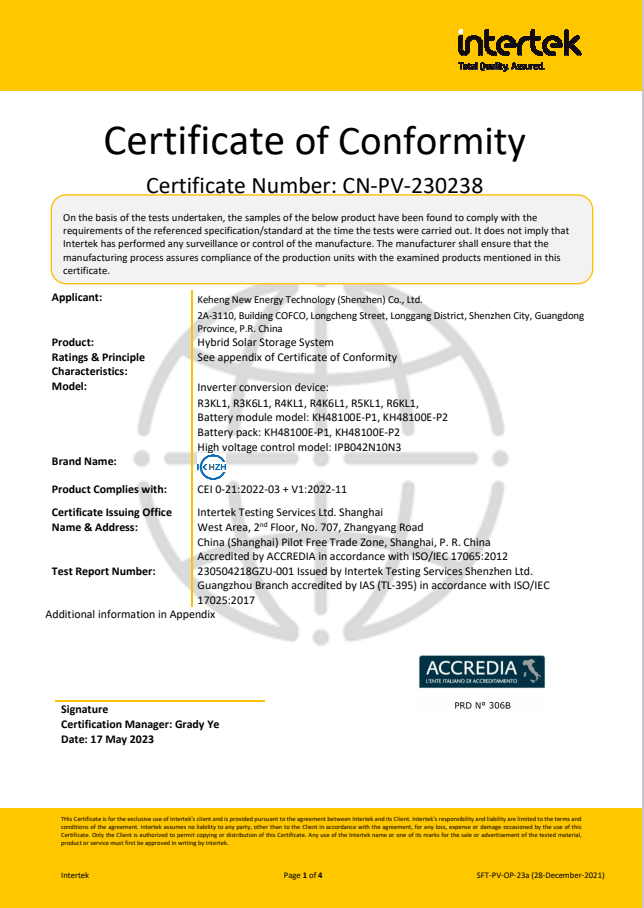
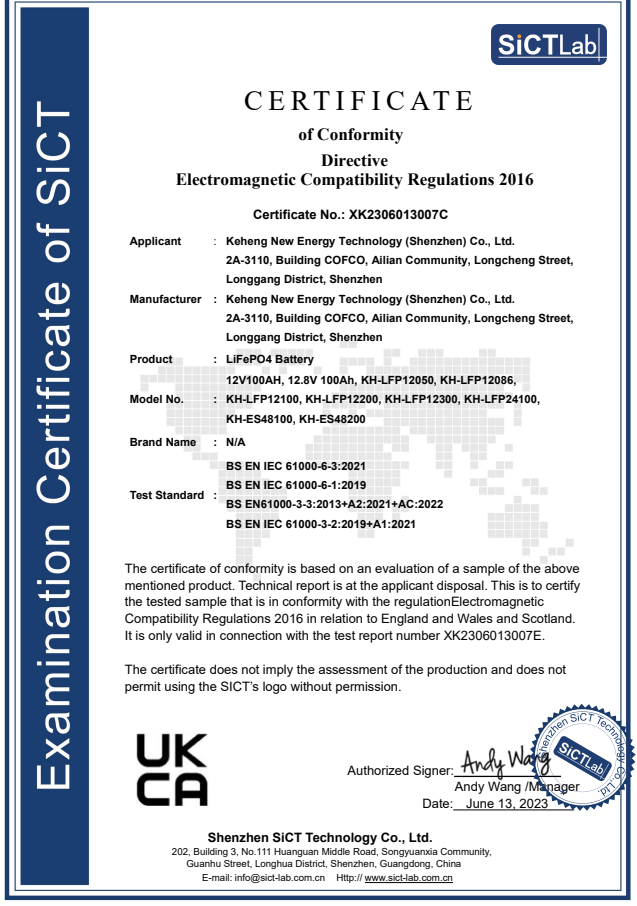
FAQ:
Battery storage, or battery energy storage systems (BESS), are devices that stored renewable energy such as solar energy or wind energy and then released when the power is needed most.Lithium-ion batteries, widely utilized in mobile phones and electric cars, hold a dominant position as the energy storage technology, contributing to the stability of electricity grids through reliable renewable energy supply.We, Keheng Battery – a company focus on battery storage systems for industrial, commercial and residential buildings.
1,Renewable Energy Source;2,Reduces Electricity Bills;3,Diverse Applications;4,Low Maintenance Costs.
1,Initial cost is expensive;2,Depend on the sushine and weather;3,Takes up a Lot of space.
A battery storage system is replenished using electricity generated from renewable sources like wind and solar power. Smart battery battery manage system manage energy generation.The stored energy is subsequently released during peak demand periods, reducing costs and ensuring a consistent electricity supply.
Step 1 – Figure out how much electricity you use every month;
Step 2 – Get to know how long for the average sunchine time in your place;
Step 3 – Calculate the total power of solar system you need; Step 4 – According to the power of single solar panel,figure out how many panels you need.
SEND A MESSAGE
- We will contact you within 12 hours.
- Don’t worry, we hate spam too!
energy Storage System Old
Solar Battery Storage System: The Ultimate Guide
What is a solar energy storage system?
The solar battery energy storage system stores the energy generated by solar panels and releases the energy during the peak period of electricity consumption or emergency power outage to meet people’s electricity demand. Solar energy storage not only brings many conveniences to people but also helps to protect the environment.
How many types of solar energy storage systems are there?
The types of solar energy storage systems include On-grid or grid-tie solar storage systems, off-grid solar storage systems, and hybrid solar storage systems.
• Grid-connected system
Grid-tied systems have no batteries, use solar inverters or microinverters, and are connected to the public grid, generating excess solar energy exported to the grid. On-grid solar systems are the most widely used solar systems for homes and businesses.
• Off-grid system
Off-grid systems require battery storage because they are not connected to the grid. Off-grid solar systems are demanding design so that there is enough battery capacity to meet the home’s needs. Because of battery and inverter requirements, off-grid systems are much more expensive than grid-connected systems. But the off-grid solar battery systems market is also growing because of falling battery costs.
• Hybrid system
Hybrid solar storage systems use the combination of two or more energy systems to produce energy, a variety of solar batteries, and the utility grid.
Pros and cons of solar battery storage
Benefits of solar battery storage:
• Energy independence
The solar energy system can store energy and allow various electrical appliances to operate generally without relying on the grid. It is equivalent to a backup power source and will enable you to control the power source freely. Whether it is cloudy and rainy or there is an emergency power outage, solar storage allows you to have an independent home grid.
• Energy security and stability
As an independent power system, solar power can stabilize your power. Especially in an environment where the power grid is unstable and power outages often occur, the advantages of solar energy storage are more prominent. It will keep your home bright all day long.
• Reduce carbon emissions
The solar storage system uses recyclable green renewable energy, significantly reducing carbon emissions, and is more conducive to environmental protection than industrial fuels.
• Reduce noise
As we all know, the noise generated by traditional generators during operation seriously affects the lives of surrounding residents. One of the advantages of a solar battery energy storage system is that it is quiet enough. Even if used for a long night, it will not make any disturbing noise.
• Save on electricity bills
Solar systems have storage capabilities that allow you to save excess energy. The system can save extra energy when electricity consumption is low during the day. You can use the energy released by the solar system at night when electricity consumption peaks. In the long run, it can help you save a lot on electricity bills.
• Long-lasting
Lithium solar battery systems have a very long service life, typically 5-10 years, and even longer with proper maintenance.
• Basic maintenance-free
Solar energy storage systems are simple and require little care and maintenance. Even if it is charged and discharged thousands of times, it can still run at high intensity.
• Disadvantages of battery storage:
Expensive addition to solar arrays
May need to be installed at the same time as the solar panels
Additional monitoring features required
How much does a solar battery storage system cost?
Solar energy storage costs are divided into three areas: upfront, ongoing, and maintenance costs.
Upfront costs include the purchase and installation of the solar energy storage system.
Ongoing costs include the cost of monitoring and maintaining the system regularly.
Maintenance costs include repairing or replacing system components as needed.
While the most significant factor affecting cost is the battery’s capacity, other factors include power rating, depth of discharge, round-trip efficiency, and warranty provided.
Although it will incur these costs, solar energy storage stores energy during peak production and releases energy during peak power consumption. This way can balance the fee and can obtain more convenience.
Are solar battery storage worth it?
See the advantages of solar energy storage systems listed above. If you live in an unstable power grid and want an independent and stable backup power supply; if your grid charges are high during peak periods of electricity consumption; or if you wish to contribute to environmental protection, then it is highly recommended that you install solar cells energy storage system.
How To Choose the Best Solar Battery Storage for Your Home?
There are several factors to consider when choosing a solar battery:
• Battery capacity
The battery capacity refers to how much power can be stored at a time. The higher the capacity, the longer the power supply time. The average capacity of a solar cell is about 10 kWh.
• Depth of discharge
Depth of discharge refers to how much energy a battery can release without affecting its lifespan. The average home solar battery has a capacity of 10 kWh. If the DoD of the battery is 80%, you would want to draw no more than 8 kWh without charging. The higher the DoD, can extract the more power at once without harming the battery.
• Battery Duration
Depending on the battery type, battery duration is how long the battery can run without recharging. The more battery packs, the longer the run time. The less energy consumed, the longer the solar battery will provide power.
• Round-trip efficiency
Round-trip efficiency refers to how efficiently a cell operates over a cycle, which is the ratio of the energy used from the solar cell to the energy required to store that energy. For example, 80% round-trip efficiency refers to a 10 kWh battery, and we can only use 8 kWh. High-efficiency batteries can save more costs. Generally, choose 80% or higher efficiency batteries.
• Battery Life and Warranty Options
A battery completes one charge, and one discharge is considered a cycle. After many cycles, the battery’s ability to hold a charge decreases. Or a warranty usually guarantees that the battery has a specific capacity and can complete a certain number of cycles or years. It is recommended to buy batteries that are guaranteed to operate at 70% capacity after 10 years or 10,000 cycles.
• Battery Type
The type of battery affects the efficiency of the solar panel. The type of battery depends on the chemistry that stores energy. Lithium-ion batteries have been prevalent recently, and there are mainly two types nickel-manganese-cobalt (NMC) and lithium iron phosphate (LFP).
How much solar battery storage do I need?
First, you need to determine why you are buying solar battery storage.
Do you want to save the excess energy fed back to the grid, or do you want to be a backup power source during a power outage? Second, how much budget do you have prepared?
How much solar battery storage you need depends on how much energy you generate; your daily energy usage needs. The usage needs vary according to the number of families, geographical location, building type, and household appliances.
For most homes, a single solar battery can provide enough backup power for essential functions during temporary outages. You can track your energy usage through your bill or by installing an energy monitor.
Of course, if you don’t want to spend time calculating, you can also come to consult us. Our experts will be happy to provide you with practical advice on meeting your solar system needs.
Top 10 solar battery manufacturers
• Tesla Powerwall
• LG Chem RESU
• Panasonic
• SunPower
• SolarEdge
• Sonnen
• BYD
• Generac PWRcell
• Enphase
How to choose a good solar battery storage manufacturer?
Before purchasing a solar battery energy storage system, there are also factors you need to consider, such as battery quality, warranty, and more. These factors are directly related to manufacturers of solar battery energy storage systems. Therefore, we also need to confirm whether the solar cell manufacturer has enough experience, whether there are professional factories and advanced equipment, and whether there are skilled technicians and sales teams.
All these can meet the requirements of solar cell storage supply worthy of our trust business.
How does a solar battery work?
Sunlight hits the solar panels, converting the energy into DC. The electrical energy goes into the battery and is stored as DC. The DC power then leaves the battery and goes to the inverter, which is converted into AC power that the home can use.
How much battery for solar system?
To determine how many batteries you will need for a solar project, calculate your total daily electricity demand (in watt-hours, or Wh) times how many days the battery will need to store power.
How to add batteries to solar system?
Adding batteries to an existing solar system can be done in two ways:
• Inverter Replacement/DC Coupled Systems
With a DC-coupled system, a change to a hybrid inverter is required, which requires redesign and wiring to accommodate the battery. There will be a high upfront cost, but the system will be more efficient at converting energy. The direct current generated by the solar panels is used to charge the batteries. The electricity goes through a hybrid inverter, which converts the electricity to AC. Alternating current can be used in a home or business or fed into the grid.
• AC coupled system
AC-coupled systems can retain existing inverters. The direct current generated by the panels goes to the inverter to convert it to alternating current. The inverter will send it to your appliance if you are using a device. If excess power is generated, it is sent to the battery, and when it is fully charged, it is sent to the grid.
The AC-coupled system can be used with various inverters, which is not only easy to install but also more flexible in the installation location, lower cost, but relatively less efficient.
What is the best way to store solar energy?
Solar batteries are a great way to store residential solar energy. The most common type of battery used for solar energy storage is the lithium-ion battery, which can store solar energy through a series of chemical reactions in which lithium ions are moved through an electrolyte solution within the battery. So, when a solar panel supplies power to a battery storage system, a chemical reaction moves lithium ions and releases electrons in the electrolyte solution inside the battery, thereby storing energy.
If you want to store solar energy, there are specific types of solar storage systems to choose from based on your needs, budget, and location. Off-grid solar storage systems are suitable for buildings off the public grid. Hybrid storage systems are ideal for facilities that require backup power only when connected to the grid.
How long do solar storage batteries last?
The service life of the solar battery is 5-10 years. How long it can be used needs to consider in your care and maintenance.
How do I install a solar battery?
• Collect solar components
Prepare solar panels, charge controllers, inverters, battery packs, circuit breakers, meters, MC4 connectors, fuses, etc.
• Calculate electrical load
Record the running time of commonly used home appliances in a day. Check the appliance’s spec sheet, age or run time and wattage rating. Calculate “watt-hours” by multiplying the run time by the rated power and counting all the watt-hours.
• Select battery and charge
Use batteries to solve the problem of not providing power after the sun goes down. You can monitor the charging status of the battery through the power controller, which is equipped with LED etc., to notify the charging status of the battery.
• Set up the inverter
Fasten the solar panels to the roof;
Connect the solar panel to the battery.
• Setting Up the Inverter and Batteries
Prepare battery and inverter bracket, connect controller and solar panel, pair battery and controller, connect the controller to DC load link.
How can I extend the lifespan of my solar battery?
The average battery life is 5-15 years. Proper maintenance of the battery can prolong its service life.
• Limit the number of batteries: more batteries create more resistance, resulting in more uneven charging. So please control the number of batteries.
• Rotate batteries: The batteries on the outside of the battery pack are better than those in the middle. Regularly rotate the batteries to make the battery charge more balanced.
• Use large battery interconnect cables: Large battery interconnect cables reduce resistance for even charging.
• Avoid not charging for a long time: If the battery is not charged for a long time, it will cause damage to the battery.
• Correct charging: Correct charging of the battery can make the battery life longer and avoid more costs.
• Allow to deflate or boil: Batteries deflate or boil is usual. Regular refilling with proper ventilation is suitable for battery charging.
• Cell Balancing: Balancing is the controlled overcharging of batteries, providing an opportunity to bring all cells back to full charge.
Solar Storage battery news
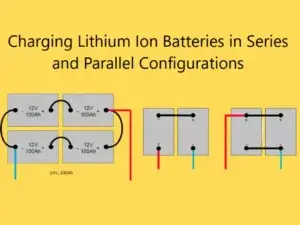
Are Parallel and Series Batteries Dangerous? Safety Concerns Explored
Exploring the safety risks of series and parallel battery configurations is crucial in understanding the complexities involved. From overcharging to thermal runaway, these setups require meticulous management to ensure safe operation and longevity. Implementing robust Battery Management Systems (BMS) is essential for monitoring and controlling voltage and current levels in each cell, mitigating risks associated

Interpreting dq/dv Graphs for Battery Analysis
Delve into the world of battery analysis with the importance of interpreting dq/dv graphs. Discover how peaks on the graph reveal battery health, capacity, and electrochemical processes. Uncover techniques for improving interpretation and real-world applications that showcase the significance of dq/dv analysis. From electric vehicles to aerospace applications, dq/dv graph interpretation plays a crucial role
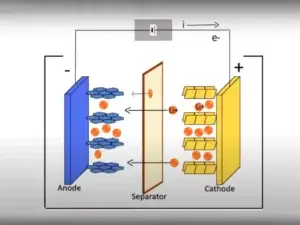
Expert Tips: How to Charge Lithium Ion Battery
Introduction to Lithium Ion Batteries Lithium ion batteries have been the hallmark of the energy storage revolution since their introduction in the 1990s. These rechargeable batteries are famous for their high energy density, low self-discharge rate, and long lifespan. This has made them the preferred choice for powering electric vehicles, golf carts, RVs, and a





















